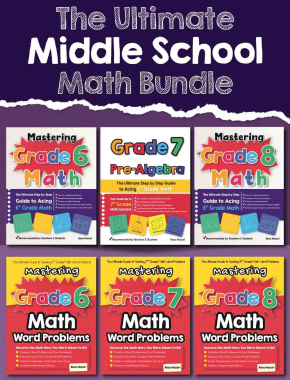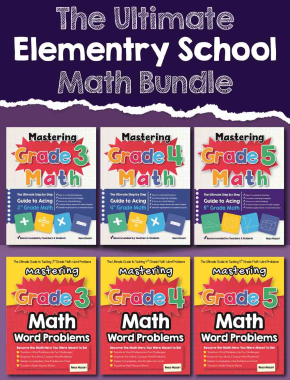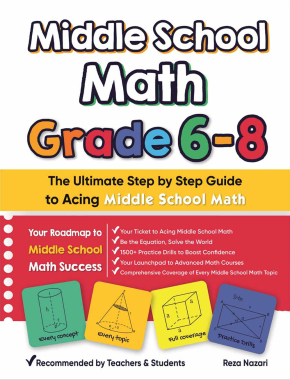How to Instill in Your Child a Love of Math at School: Tips for Parents
Many kids don't love math and think of learning it as punishment, but parents like you have a secret weapon to change their minds.

Let’s face it:
While some kids love mathematics and everything related to this subject, most schoolers struggle with it, considering math dull or too difficult to learn.
Why is it so? We know that even toddlers and few-month-old babies understand the quantity concept but lose interest in math once we introduce it formally.
What do we, parents, do wrong? Why is math critical to know in today’s environment, and what can we do to instill a love of math in our kids?
Why do Kids Lose Interest in Math?
According to the data from NCES (the National Center for Education Statistics), the pandemic has hurt schoolers’ progression in math the most. The reason is that kids studied remotely, and it was challenging for parents to instruct math problems to them.
Most parents learned math the “old” way, and they pass their own biases against this subject to their children:
We focus on terms, symbols, and formulas that can be hard to memorize instead of helping our kids learn fundamental math concepts in a fun way. We emphasize the solution instead of how our child thinks and arrives at that solution.
And:
We aren’t teachers, after all. For parents, it’s less comfortable to assist with math than, say, history or reading because we don’t know teaching methods and can’t explain math principles.
Parents don’t have time and energy to peruse modern ways of introducing math to their kids. (Let’s face it, we have many other subjects to get our child through, and we often don’t have the resources to succeed with them all.)
At the same time, we understand the importance of STEM disciplines in 2023. So, we expect the kids to be perfect in math, make no mistakes, and finally win in today’s competitive environment.
Here comes the dead end:
Parents want their children to love and learn math, but they don’t know how to help kids learn it and how to instill a love of this subject in them.
The hint:
You can do that – and it will be easier to do – if you start at an early stage (age)!
Why the Love of Math is Critical to Instill at an Early Stage?
First, the question:
Do you know anything about Srinivasa Ramanujan?
He is India’s famous mathematician, in whose honor we celebrate National Mathematics Day on December 22.

Srinivasa is a legend who knew nothing about math until he turned 10! It was the age when adults introduced the subject to him, and he hadn’t had any math book or formal math training until he was 16.
Thanks to Srinivasa’s natural curiosity for numbers, we have a brilliant scientist with hard-to-overestimate contributions to the theory of numbers, including the partition function.
And now, imagine what could happen if his parents had already supported and developed their kid’s curiosity in numbers and patterns!
First and foremost, math is everywhere: Shopping, art, timelines for planning, design, gardening – there’s no niche where a person doesn’t need math fundamentals to succeed. Math activities help kids grow soft skills like creativity, problem-solving, and critical thinking.
More than that, scientists have proven a strong link between a kid’s numeracy skills and future academic achievements. The stronger the math foundation in the early years, the better academic results in the future.
Finally, we already know that 80% of jobs in the future will require STEM – science, technology, engineering, and mathematics – skills, regardless of the field a person wants to pursue.
According to Mike Lefkowitz from the MIND Research Institute, mathematics “not only develops more engineers and scientists but also produces more citizens who can learn and think creatively and critically.”
It means that the workforce of all fields demands a solid math foundation to thrive. So, the earlier they start math education, the better.
9 Tips for Parents on How to Instill the Love of Math

All this is great, but what about the above challenge most parents face? What can we do to help kids learn math and love this subject?
Here are nine tips to boost your child’s interest in math:
1- Say No to Biases
Do your best to keep your biases about math away from your children. If let’s say, you didn’t love math in school, considered it hard to learn, and so on, avoid saying something like, “I hate math” or “When I was your age, I hated it!”
It can cause math anxiety or motivate kids to copy your attitude.
Even if you were a math genius in school, avoid boasting to your child about how easy it was to solve problems and equations. When struggling with math tasks and knowing how easy it was for a mom or a dad, your kid may feel stupid or unfulfilling your expectations.
Instead, you can help a child improve their attitude toward the subject.
Tell them how you solved math problems or what made math exciting. Point out the role of math in different niches like medicine, design, computer programming, or even gardening!
Show your kids how confident you are when dealing with math in everyday life: counting money and taxes, estimating the cost of purchases in a shop, etc. Show them how great it is to get excited about math.
2- Integrate Math Into Daily Routine
The best way to learn something is by doing that. So, integrate simple math activities into daily life for your kids to get familiar with math concepts outside school.
What can it be?
Figure out the price of food in a grocery store; learn the difference between time zones before calling a grandpa; ask a kid to count how long it will take to travel to a beach by car.
When cooking together, you can practice fractions: Most recipes require understanding proportions. Ask a kid to count things: to bring five plates or napkins to the table, to put a particular number of fruits in a basket, and so on.
Long story short, show them that math is everywhere and it’s fun to learn.

3- Accept It’s OK to Make Mistakes in Math
When helping kids deal with math equations, some parents still focus on the result and scold a child for a wrong answer. The same goes for criticizing kids for making math mistakes outside school or trying to correct parents: “Adults know better,” after all.
Do your best to get rid of such prejudices.
He who does nothing is not wrong. It’s OK to make mistakes in math:
Every kid has a unique learning style, and they try different ways of looking for mathematical solutions. It stands to reason that you’ll get a lot of wrong answers. As a parent, you should encourage them to keep looking instead of blaming them for mistakes.
And make it a habit to thank a kid when they correct you. It will influence their proactivity and engagement in math.
4- Go Online
For today’s kids, who are tech-savvy and hard to imagine with no smartphone or laptop, math becomes dull because of “old school” techniques teachers use to introduce it.
To change that, be modern parents who keep up with the times and welcome math activities their kids can find online.
Educational videos on YouTube and other websites; online games helping kids solve math problems in a fun way; AI tools explaining math concepts and assisting with questions – exposing your child to these techs will make math more compelling for them.
5- Read Books That Mention Math
When reading books with your kids, do your best to choose math-related ones. It doesn’t mean they need to be about math theory or scientific methods that are boring for most children to read:
Consider books where characters solve problems using math or where a protagonist demonstrates a love to STEM or logic. They will motivate your kid to get interested in the subject.
Where to start?
Books like One Hundred Hungry Ants by Ellinor J. Pinczes or Anno’s Three Little Pigs by Mitsumasa Anno and Tuyosi Mori are great trying.

6- Play Math Games at Home
This tip isn’t anything new or unique: Kids love games, so it stands to reason that they’ll love math games, either, if their parents spend time playing those games together.
Try math games like checkers or dominoes with younger kids, and get your older child interested in chess, Monopoly, Sudoku, or Backgammon.
Gamification and interactive elements in lessons have always been a surefire way to hold schoolers’ attention. By playing math games with your child, you’ll demonstrate how exciting this subject can be.
7- Use Money
Teaching your child about finances will arm them with critical skills for future life. And talking about income, taxes, spending, and credit cards, you’ll encourage a kid to learn to calculate, use percentages, and conduct other operations with cash to use it wisely.
Encourage a child to save funds and explain how they can use their pocket cash to buy what they want. Take kids shopping to count prices per gram or calculate the discounts together.
Award them with buying something if they can calculate the change correctly. The more they see math around, the better they understand it’s exciting and practical.
8- Ask About Their Math Homework
Show your interest in what your kids do and learn at school. When doing math homework together, ask a child to explain what they’ve learned and how they will solve the assigned task.
Not only will it help you understand if they need your help or can do the homework alone. You’ll let your kid imagine themselves as a teacher explaining math formulas, thus, remembering them better.
If you see that a kid needs your help, but you aren’t a math genius to assist them with the homework, consider online learning resources that provide concise, step-by-step explanations of math concepts.
9- Talk to a Teacher
It’s hard to instill a love of math in your child if you don’t know modern learning standards and don’t understand what skills your kid should master at their current age.
A math teacher can help here.
As a responsible parent, you shouldn’t wait for your child to come from school and tell you what they’ll learn. Talk to your kid’s math teacher to know what they should be learning and be able to complement that with activities at home.
Teaching methods have changed since today’s parents were in school. More focus is on how students explain their thinking using manipulatives and tech rather than just giving a correct answer. Keep that in mind when practicing math activities with your child.
Takeaways
Parents are often guilty of their kids’ dislike and indifference to mathematics: Our negative attitude forms a child’s prejudice against the subject critical for their future life and career success.
With the above tips, you’ll help your child understand math beauty and get interested in it at an early age.
Related to This Article
More math articles
- Coordinate Planes as Maps
- Full-Length SAT Math Practice Test-Answers and Explanations
- How to Identify One-by-One Functions from the Graph
- Linear Differential Equations: Bridging Mathematics with Practical Applications
- 8th Grade Ohio’s State Tests Math Worksheets: FREE & Printable
- Mastering the Midpoint & Distance on the Number Line
- Top 10 Tips You MUST Know to Retake the TABE Math
- How to Distinguishing Numbers: Prime vs. Composite
- 7th Grade Scantron Math Worksheets: FREE & Printable
- Top 10 Tips to Create a SHSAT Math Study Plan


















What people say about "How to Instill in Your Child a Love of Math at School: Tips for Parents - Effortless Math: We Help Students Learn to LOVE Mathematics"?
No one replied yet.